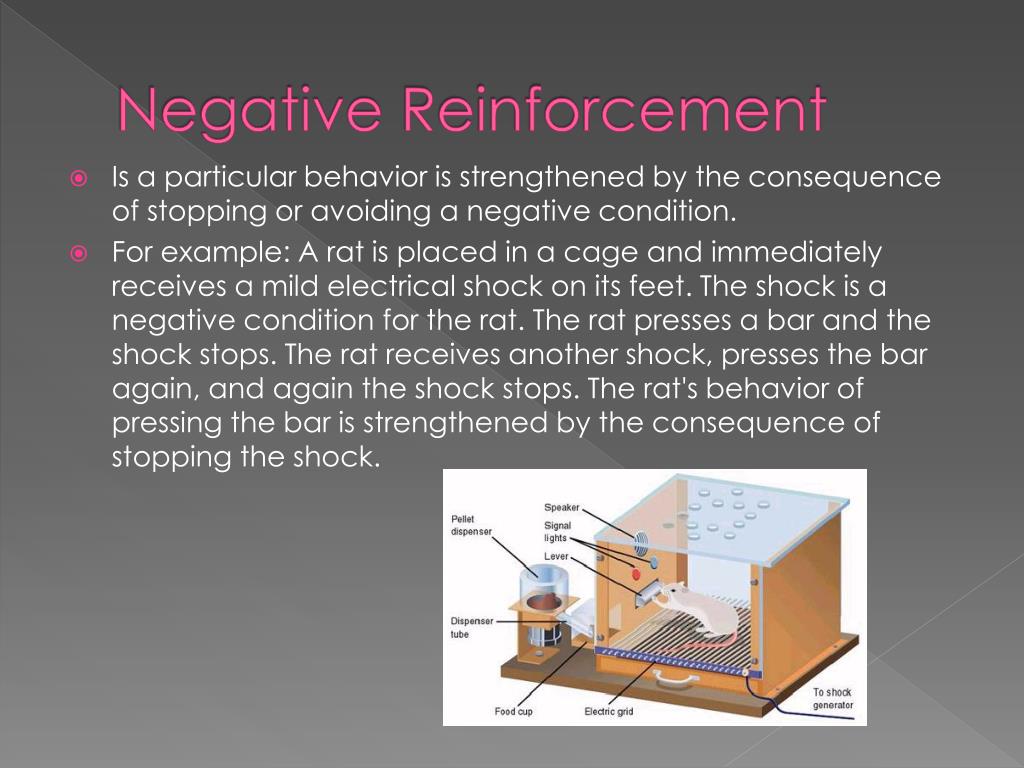
That person could require some unrelated behavior from you (say, clapping your hands three times) before you got access to the aspirin. The actions of opening the aspirin bottle and taking an aspirin are reinforced by the relief the aspirin provides from a painful condition.īut in socially mediated negative reinforcement, perhaps someone else has the keys to the medicine cabinet. In automatic negative reinforcement, the reinforced behaviors are directly related to solving the problem. And most important, they can intervene in the reinforcement process and can determine what behavior is required to get the aversive to stop or reduce in intensity. In negative reinforcement this means that another person or group removes the aversive stimulus. If another person is involved with the function of the behaviour this would be defined as “social reinforcement” or “socially mediated reinforcement” (Cooper et al., 2007). The other type of reinforcement is called “socially mediated” reinforcement.
Negative reinforcement examples aspirin movie#
Check out this post if you’d like to see a movie with 16 automatically negatively reinforced behaviors (by a human). Some undesired condition develops, we take action to change it, and if successful we personally reap the benefit. We learn to do the things in that list, usually as children or teenagers, to make ourselves more comfortable. (For a review of the four processes of operant learning, you can read my post Operant Learning Illustrated By Examples.”) The above examples are negative since they deal with removing an aversive condition. Skinner termed “automatic reinforcement.” Here’s a typical definition:Īutomatic reinforcement occurs when a person’s behaviour creates a favourable outcome without the involvement of another person (Cooper, Heron, & Heward, 2007).Īutomatic reinforcement can be either positive or negative. What’s the fuss about and why do some people try hard to avoid it in animal training?Īll of the above examples have something in common. Reading these, one can come away with the impression that negative reinforcement is just no big deal. Putting on a coat when the temperature drops.Covering your ears if there is a loud sound.Taking an aspirin if you have a headache.


Turning on the windshield wipers in the car to remove rain from the windshield.
Negative reinforcement examples aspirin full#

Quite often in discussions about negative reinforcement, someone brings up a plethora of examples from human life that sound harmless and benign. Posted on SeptemJby Gorilla scratching an itch


 0 kommentar(er)
0 kommentar(er)
